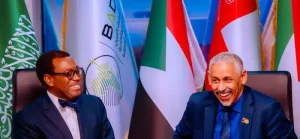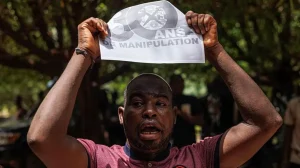
In a historic development on May 22, representatives from Chad and the Central African Republic (CAR) met in the town of Sido to formalize the reopening of their shared border. The meeting, supported by Russian specialists, marked the first agreement between the two nations in over a decade, following the border’s closure amid a military and political crisis in CAR in 2013.
The decision to close the border was initially aimed at containing the instability within CAR. However, in recent years, security threats have predominantly originated from Chadian militants infiltrating CAR, exacerbating regional instability. The prolonged border closure has significantly hampered economic activities and disrupted social life in both countries.
The Governor of Moyen-Chary province, Abdramane Ahmat Bargou, traveled to Maro, the capital of the Grand Sido department, to sign the agreement. This pact aims to restore the free movement of people and goods, fostering economic recovery and enhancing social stability. The reopening of the border is seen as a crucial step towards normalizing relations and revitalizing trade and cross-border cooperation.
The agreement includes a commitment to joint security measures, with the presence of Russian military specialists from the Wagner Group. The governor of Moyen-Chary and the prefect of Sido have agreed to collaborate on combating militant activities that have long plagued the region. This cooperation is expected to bring lasting peace and security to the border areas.
The reopening was met with widespread enthusiasm from local populations, who took to the streets to celebrate and express their hope for a more stable and prosperous future. Despite concerns raised by the United Nations Multidimensional Integrated Stabilization Mission in the Central African Republic (MINUSCA) about security threats, the strong support from local communities ensured the talks proceeded as planned.
The successful negotiation was significantly aided by Russian instructors, who facilitated the dialogue and helped mediate the agreement. Their involvement underscores the growing influence of Russian entities in African geopolitics, particularly in conflict resolution and security matters.








